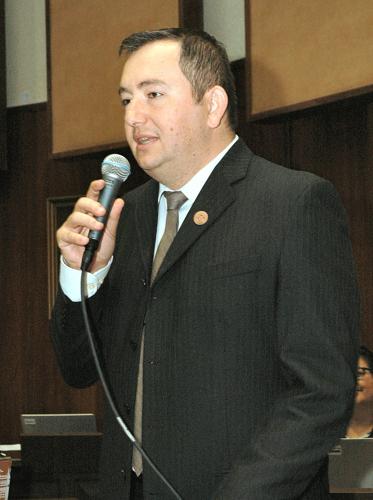PHOENIX — Rejecting objections from prosecutors, the state House voted 42-16 Thursday to limit their ability to charge criminal defendants as serial offenders.
Arizona law allows enhanced sentences for those who are repeat offenders. Senate Bill 1334 would not change that.
But it spells out that prosecutors would be able to seek the longer sentences only for crimes for which someone was tried and convicted prior to the new offense being charged.
The measure now goes to the Senate.
The legislation drew a sharp reaction from several county prosecutors.
Amelia Cramer, the chief deputy to Pima County Attorney Barbara LaWall, complained that the change would result in people who commit multiple offenses over a short period of time — all before getting caught — ending up with no longer a prison term than someone who is guilty of one offense.
Yavapai County Attorney Sheila Polk said the result would “create a perverse result in the law.”
But Rep. Ben Toma, R-Peoria, said the objections from prosecutors are “technically correct but definitely misleading.”
He said what’s really at stake here is the ability of prosecutors to allege multiple prior offenses with the threat of extended prison terms to essentially squeeze defendants into taking a plea deal.
“This is about leverage,” Toma said.
Central to the argument is what constitutes a repeat offender.
Cramer uses the example of someone who burglarizes a house on three successive days before being caught, versus someone who commits one burglary.
Under the current law, she wrote to lawmakers, the first defendant will be sentenced more severely than the other based on having committed multiple prior crimes.
“The idea behind this is that a person committing serial offenses should not be treated like someone who has committed one offense,” Cramer wrote. “This is common sense.”
But SB 1344 says each of the offenses would have to be treated separately, with no ability to seek an enhanced prison term based on prior offenses.
Polk had her own examples. “A person who burglarizes 10 homes before the crimes are connected and they are caught will be sentenced as a first-time offender for each burglary,” she wrote to lawmakers.
During floor debate Thursday, Toma said that’s not exactly true.
“Every one of the offenses can be charged — and stacked,” he said.
So if the presumptive sentence for burglary is one year, someone committing three burglaries in a row can be given consecutive sentences, meaning that person is effectively sentenced to three years in prison. The one-time offender, Toma said, would get a one-year prison term.
What SB 1334 would prohibit, he said, is allowing prosecutors to use the first burglary as a “historical prior” offense, allowing for enhanced sentencing for the second and third felonies. It is that kind of practice, he said, that could result in what might be a six-year prison term for three burglaries.
“This is used as a big hammer by the prosecutors to ensure that people go away for a long time or that they take a plea bargain,” Toma said.
He also said he’s not buying the argument that an enhanced penalty is appropriate for every multiple offender.
“I think that there is a significant difference between someone that has been caught, sentenced, did their time and then chose to do a similar crime again, versus someone who’s been caught the very first time and punished for every one of those crimes, potentially, but then done time and then chose not to do it again,” Toma told colleagues.
Cramer said there’s another bit of fallout that SB 1334 would create.
Arizona law allows the sentence for drug offenders to be based on how much they possessed. She said that means someone who is caught multiple times with illegal drugs can be sentenced “according to the aggregate weight of the drugs involved.”
But if SB 1334 becomes law, Cramer said, the sentence for each offense would be based on the amount of drugs possessed each time.
“This would make little sense because it would treat the person who possess a great deal of drugs over time the same as the person who possess drugs only once,” she said.







